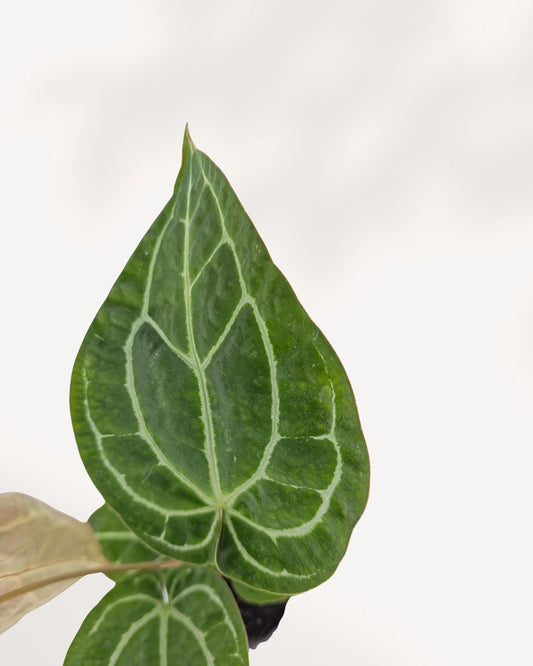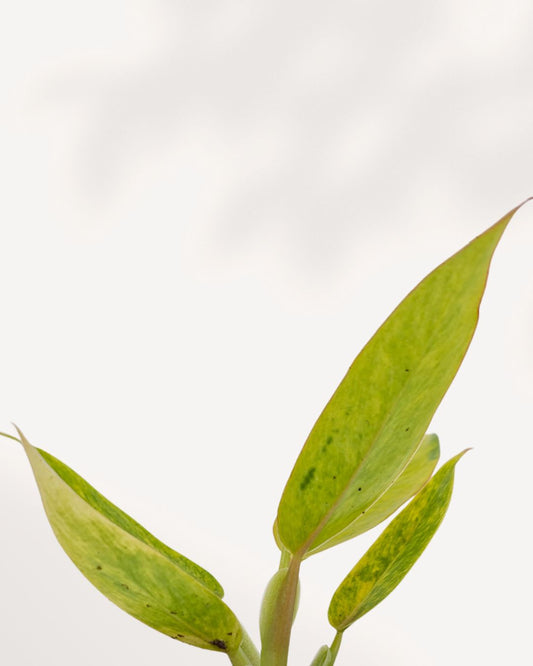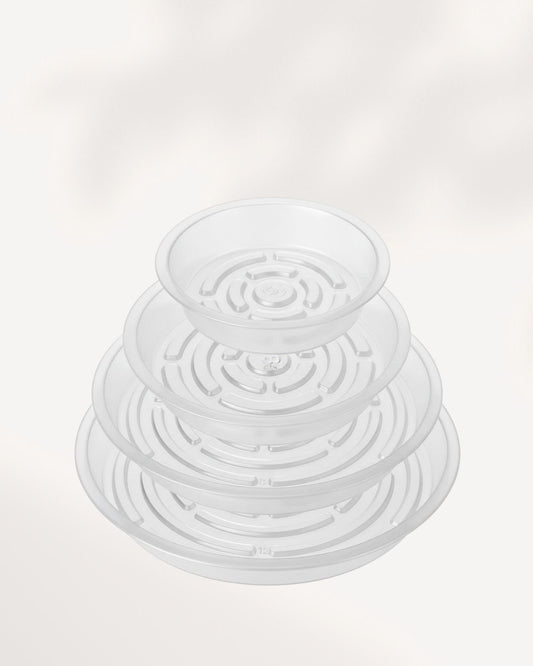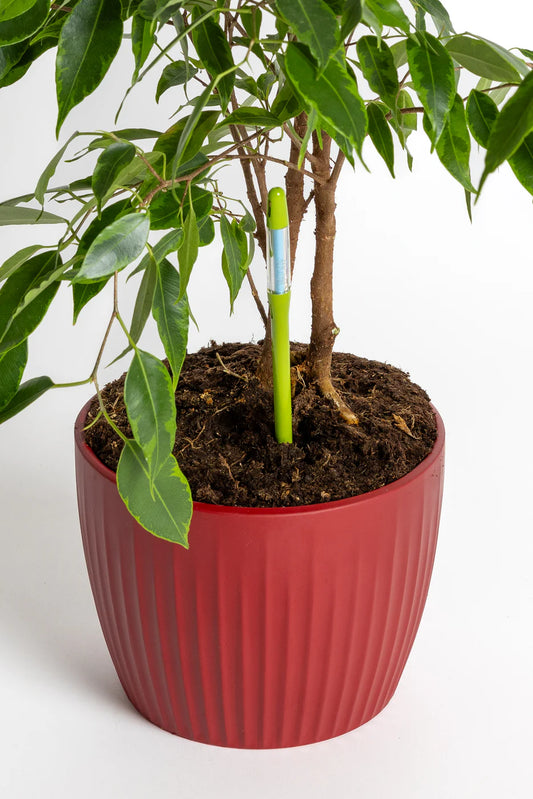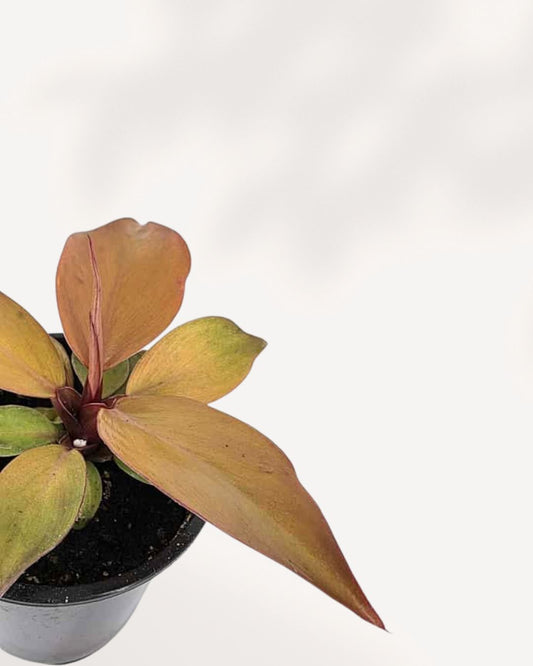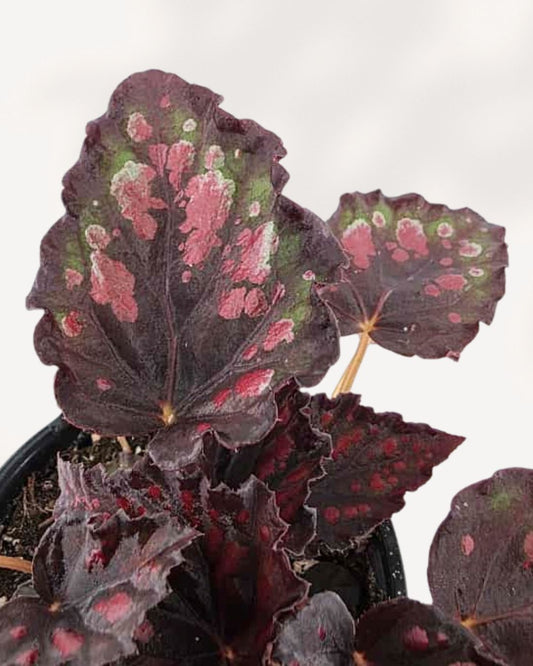How to care for Prickly Pear Plant
| Back to Library |
Quick Care Overview
| Care Aspect | Details |
|---|---|
| Light | Full sun to partial shade. Prickly Pear thrives in bright, direct light. Learn More |
| Water | Water sparingly; allow the soil to completely dry between waterings. |
| Soil | Well-draining cactus or succulent mix. Shop Cactus Soil |
| Temperature | 65–100°F (18–38°C); avoid frost exposure. |
| Toxicity | Mildly toxic to pets if ingested; spines can cause injury. |
Prickly Pear Cactus Care Guide | Growing, Watering, and Propagation Tips
Discover how to care for your Prickly Pear Cactus with expert tips on sunlight, watering, soil needs, and propagation. Perfect for succulent lovers and beginners alike!
Common Names
- Prickly Pear
- Opuntia
- Nopal
Native Habitat
The Prickly Pear Cactus is native to the Americas, thriving in deserts, rocky terrains, and coastal areas with full sun and well-draining soil.

Uses and Popularity
Prickly Pear Cactus is admired for its unique paddle-shaped pads and vibrant fruit. It’s popular in xeriscaping, drought-tolerant gardens, and is also cultivated for its edible pads and fruit.
Prickly Pear Cactus Care Guide
Light Requirements
Prickly Pear thrives in bright, direct sunlight. It needs at least 6 hours of sunlight daily to grow strong and healthy. Learn more about light requirements.
Watering Needs
Water deeply but infrequently. Allow the soil to fully dry out between waterings. Overwatering can lead to root rot.
Soil Preferences
Use a well-draining cactus or succulent potting mix. Sandy or gritty soil works best. Shop Cactus Soil
Temperature & Humidity
Prickly Pear prefers warm, dry conditions and can tolerate high heat. Avoid exposure to frost or freezing temperatures.
Fertilization
Feed with a cactus fertilizer once a month during the growing season (spring and summer). Explore Natural Fertilizers
Pruning & Maintenance
Prune any damaged pads carefully using gloves and clean tools. Remove weeds and debris around the base to prevent pests.
Propagation Tips
Pad Cuttings
Propagate by cutting a healthy pad and letting it callous for a few days before planting it in well-draining soil.
Seeds
Seeds can be planted in sandy soil but germinate slowly. Pads are a quicker method for propagation.
FAQs
How often should I water my Prickly Pear Cactus?
Water deeply once the soil has completely dried out, typically every 2–4 weeks depending on the environment.
Why is my Prickly Pear turning yellow?
Yellow pads could indicate overwatering, poor drainage, or insufficient sunlight.
Is Prickly Pear safe for pets?
Prickly Pear is mildly toxic to pets if ingested, and its spines can cause physical injury. Keep it out of reach of pets.
The Positive Impact of Plants
-
Plants and Healing
Working with plants soothes the mind. It feels calming and healing, offering a peaceful break from daily life.
-
Plants for Recovery
Being around plants can speed up healing from sickness, making you feel better quicker in a natural way.
-
Plants and Work
Plants in your space may make your work better and faster, enhancing focus and creativity during tasks.
LETTING CUSTOMERS SPEAK FOR US!
Shop by Feature
FAQs for Plant Delivery in Ontario & Quebec
What types of house plants do you offer for delivery.
We offer a wide variety of houseplants for delivery. Here are some of the popular options: Aglaonema, Alocasia, Calathea, Hoya, Monstera, Palm, Peperomia, Philodendron, Pothos, Sansevieria Snake, Syngonium, Tradescantia.
What is the lifetime support?
All plants purchased from our store or through our workshops come with lifetime support. This means that whenever you have questions or concerns about your plant, we're here to help. Whether you're unsure about your plant's health or need advice, we can assist in identifying problems, answering your questions, and potentially saving your plant. Feel free to reach out to us on Instagram @mygreenscapeto or via email at support@mygreenscape.ca.
Where do Mygreenscape plants come from?
Our plants embark on a journey from various greenhouses across Canada. We prioritize short delivery routes to ensure your plant arrives happy, healthy, and full of vitality.
Do I have to repot my plants once they arrive?
Absolutely not! When your plant arrives, give it time to settle into its new home. Place it in the desired spot, and let it acclimate for about two weeks.
Favorite in our plant shop
-
Anthurium Crystallinum Turtle
Regular price $30Regular priceUnit price per -
Philodendron Calkins Gold
Regular price $45Regular priceUnit price per -
China Doll Plant
Regular price $12Regular priceUnit price per -
Dieffenbachia Camille
Regular price $12Regular priceUnit price per -
Monstera Albo
Regular price $180Regular priceUnit price per -
3 Tier Lucky Bamboo in Deco Pot
Regular price $15Regular priceUnit price per -
Algerian Ivy Green
Regular price $10Regular priceUnit price per -
Liquid Plant Food
Regular price From $30Regular priceUnit price per -
Plant Saucer
Regular price From $2Regular priceUnit price per -
SUStee Soil Moisture Indicators
Regular price From $12Regular priceUnit price per -
Philodendron 'McColley's Finale'
Regular price $15Regular priceUnit price per -
Begonia Rex 'Harmony Stained Glass'
Regular price $15Regular priceUnit price per
MyGreenScape is your go-to online shop for indoor plants in cities Ontario or Quebec, including Toronto, Montreal, and many more. Our mission is to add joy to your home, one leaf at a time. Explore our range of beautiful, air-cleaning plants from the comfort of your home. You can find beautiful indoor plants, pots for plants, garden tools, and hanging basket plants all in one spot. Our mission is to add joy to your home, one leaf at a time.
Buying plants online with us means no more carrying heavy pots or figuring out how to get big plants home. We deliver straight from the gardener to you, with eco-friendly packaging, across Ontario and Quebec. Expect your new green friends within 2-7 days.
Why choose MyGreenScape? Here’s why:
- Lifetime Support: We’re here for you always. Get all the help you need for your plants to flourish.
- 30-Day Happy Plant Guarantee: Not happy with your plant? Tell us within 30 days, and we’ll fix it.
- Easy Delivery: Fast, direct to your doorstep in Ontario or Quebec.
Hear from a happy customer, Sarah T.: "Buying plants was never easier. Quick, simple, and with great support from MyGreenscape."
Ready for easy, stress-free plant shopping? Visit us now and make your home greener. Join MyGreenScape for a hassle-free way to bring nature inside.










